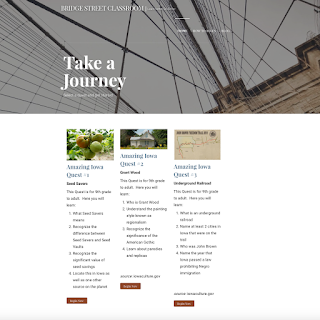Social Media is Changing Learning Environments
I am very new to social media and have yet to wrap my head around all the possibilities it has in the classroom. The Pew Research Center reports the 57% of teens (13-17) have made a new friend online (through Facebook, Instagram, Snapchat and Twitter). They are the digital natives.
In this particular election year where heated debate is aplenty. I found the concept of teaching students participatory politics with social media an unique twist. Nicole Mirra says educators can foster young people to become active producers of knowledge instead of consumers. The educators role could be to help them refine the issues in the community that matter to them personally and conduct multimedia research projects and create their own counter narratives. They develop critical thinking and critical literacy skills and in the process help to dismantle traditional power hierarchies. That lesson is engaging and powerful.
The case for Skype in the classroom is also another great topic. At a recent technology conference, I learned how teachers are using virtual field trips to explore places that are too far away or not safe for students to travel to. It is interactive and allows the class to ask questions they way they would if done in person. Mystery Skype is another great idea. It gives the class a chance to join up with another unknown classroom. They interview each other and try to guess the location of the school. Then they learn a little geography by placing a pin on a map to show the places the have "virtually" visited. It's a great way to connect globally and learn about other cultures (even ones within the U.S.)
Right now I am experiencing Zoom in my e-learning class and coming from the traditional setting, it has been hard to adapt to. I am use to only looking at the professor while talking and now I watch 18 people simultaneously. It is hard to filter. I see one person scratching their face, another taking a drink of water, and I have to force myself to really concentrate harder. I admit it something worth teaching. I have a relative who works at a very large corporation in upper management. He told me they have no phones on their desk. Say what? Yep, they Zoom Meeting all day long. One meeting auto closes and the next one opens. The company is global and face-to-face with everyone is not an option so they've digitally adapted. Educators have a responsibility to train people now to prepare for the workplace of the future, even if that means embracing emerging technologies.
image credit: Light Brigading
In this particular election year where heated debate is aplenty. I found the concept of teaching students participatory politics with social media an unique twist. Nicole Mirra says educators can foster young people to become active producers of knowledge instead of consumers. The educators role could be to help them refine the issues in the community that matter to them personally and conduct multimedia research projects and create their own counter narratives. They develop critical thinking and critical literacy skills and in the process help to dismantle traditional power hierarchies. That lesson is engaging and powerful.
The case for Skype in the classroom is also another great topic. At a recent technology conference, I learned how teachers are using virtual field trips to explore places that are too far away or not safe for students to travel to. It is interactive and allows the class to ask questions they way they would if done in person. Mystery Skype is another great idea. It gives the class a chance to join up with another unknown classroom. They interview each other and try to guess the location of the school. Then they learn a little geography by placing a pin on a map to show the places the have "virtually" visited. It's a great way to connect globally and learn about other cultures (even ones within the U.S.)
Right now I am experiencing Zoom in my e-learning class and coming from the traditional setting, it has been hard to adapt to. I am use to only looking at the professor while talking and now I watch 18 people simultaneously. It is hard to filter. I see one person scratching their face, another taking a drink of water, and I have to force myself to really concentrate harder. I admit it something worth teaching. I have a relative who works at a very large corporation in upper management. He told me they have no phones on their desk. Say what? Yep, they Zoom Meeting all day long. One meeting auto closes and the next one opens. The company is global and face-to-face with everyone is not an option so they've digitally adapted. Educators have a responsibility to train people now to prepare for the workplace of the future, even if that means embracing emerging technologies.
image credit: Light Brigading



Comments
Post a Comment